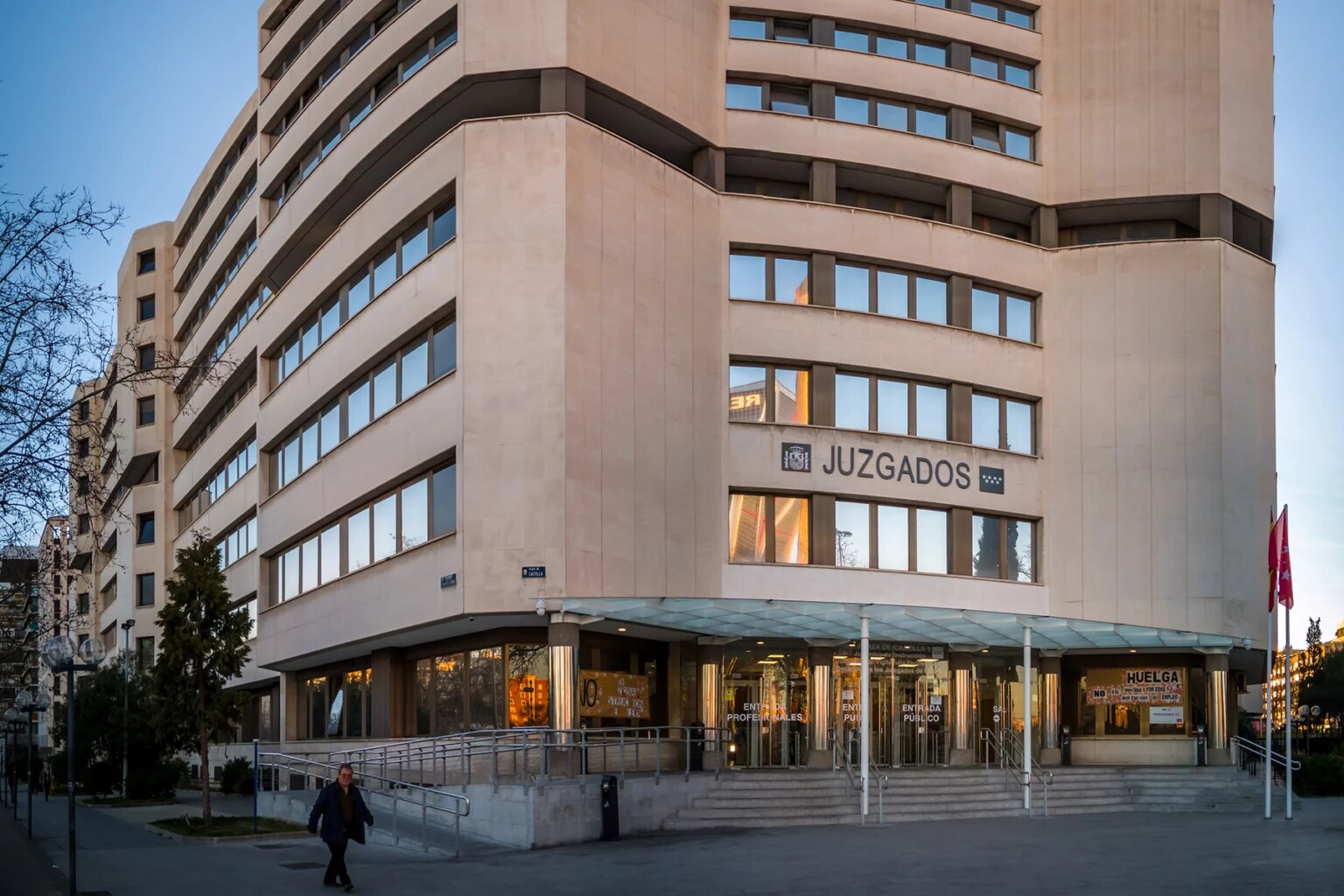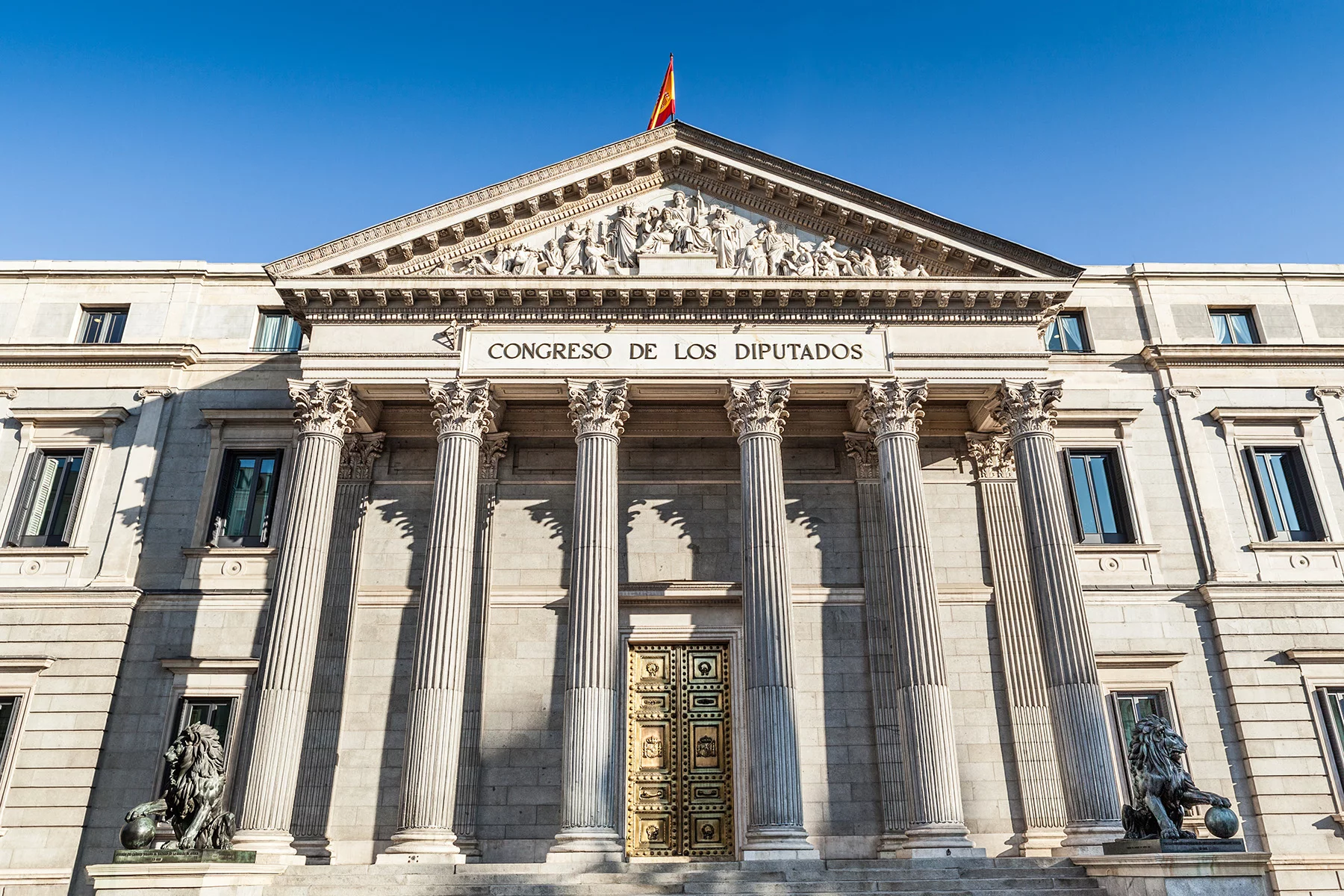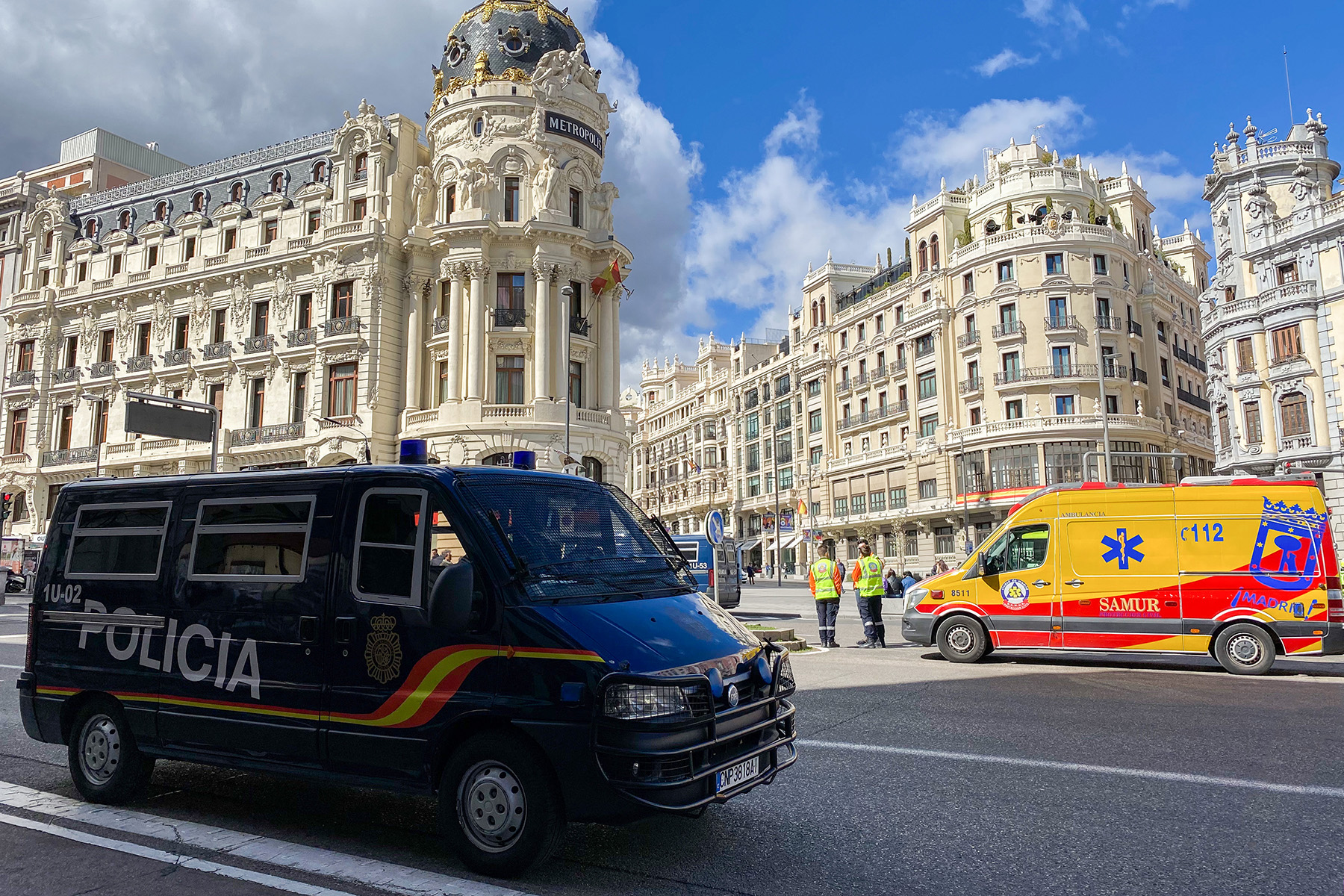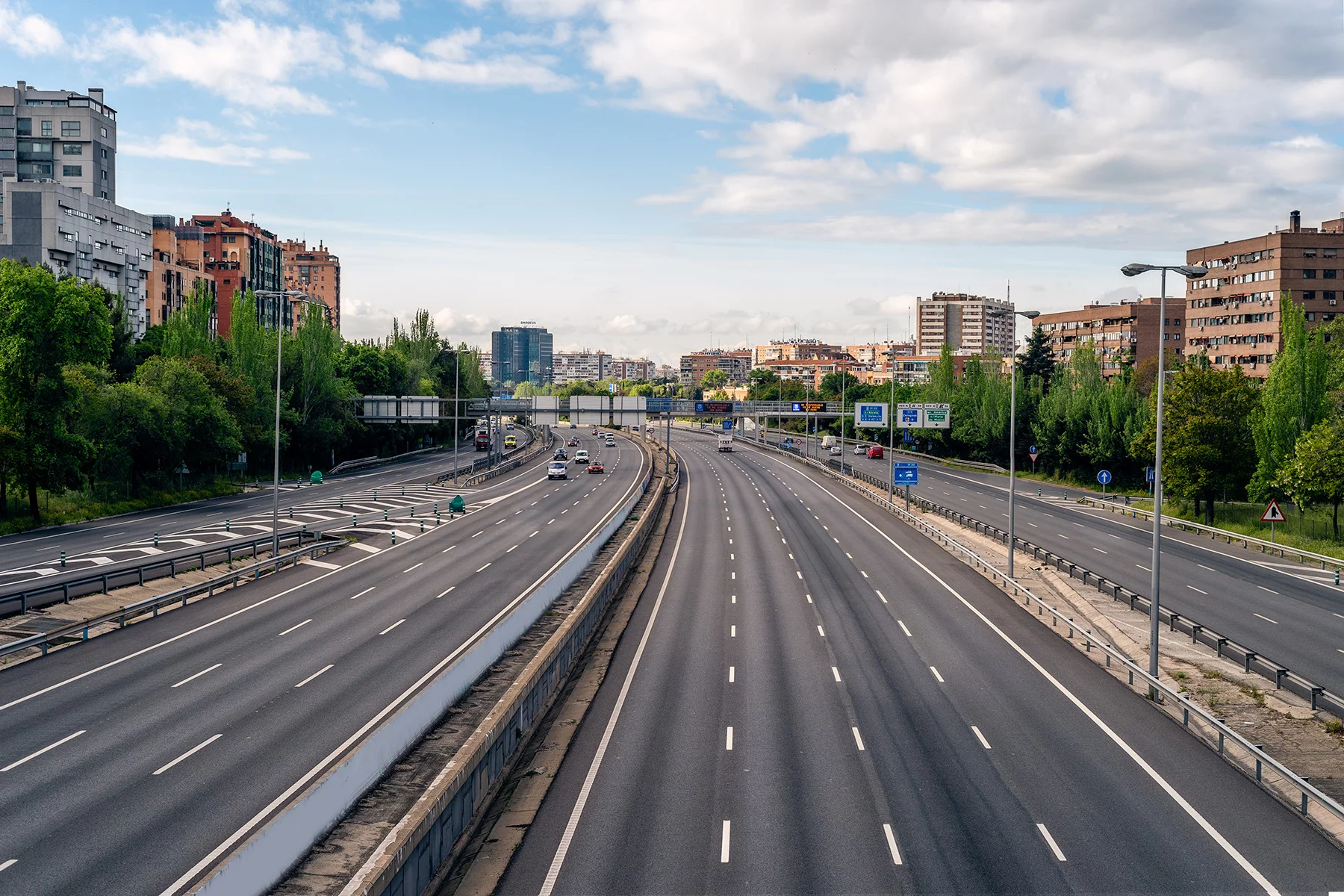The good news is that Spain generally has a lower crime rate than most European countries. However, crime still occurs, so it’s worth knowing what to do when it does and how breaches of law are dealt with.
Read on to learn about the structure of the legal system and criminal justice in Spain, with detailed sections on:
- The judicial system in Spain
- Overview of crime in Spain
- How to protect yourself against crime?
- Should you report a crime in Spain and how
- How does the Spanish criminal justice system work?
- What is the trial process in Spain?
- How is crime punished in Spain?
- Overview of Spanish prisons
- What are your rights if you are arrested in Spain?
- Legal rights for foreigners in Spain
- Useful resources
Ground News
Get every side of the story with Ground News, the biggest source for breaking news around the world. This news aggregator lets you compare reporting on the same stories. Use data-driven media bias ratings to uncover political leanings and get the full picture. Stay informed on stories that matter with Ground News.
The judicial system in Spain
As with many democratic countries, Spain’s legal system sits within its three branches of government. These are the judiciary, the executive, and the legislature.
The government department responsible for legal matters is the Ministry of Justice (Ministerio de Justicia).
Courts consist of national courts, of which the Supreme Court (Tribunal Supremo) is the highest. The country also has an extensive network of regional courts. These are staffed by judges and magistrates and overseen by the General Council of the Judiciary (Consejo General del Poder Judicial – CGPJ).
Spanish legal system in brief
The various areas of Spanish law include:
Spain’s laws are based on the country’s 1978 Constitution, legal codes such as the Criminal and Civil Code, various parliamentary laws, regional laws that apply to the autonomous communities, and international laws such as EU laws.
How fair is the Spanish legal system?
Spain ranks 24th out of 142 countries on the 2023 World Justice Project (WJP) Rule of Law Index. The assessment shows that Spain has a well-developed legal system, but there is still room for improvement. The country scores its highest marks for order, security, and fundamental rights but lower for civil and criminal justice.
Although Spain has a strong legal system, only 34% of people rate its independence as “very good” or “fairly good” (2023) compared to an EU average of 53%. According to the 2023 EU Justice Scoreboard, both the general public and companies believe that interference or pressure from the government and politicians is the main reason for the perceived lack of independence.
Overview of crime in Spain
It’s generally very safe to travel to Spain. The country has a lower homicide rate than the OECD average, and about 80% of people feel safe walking alone at night.
- 32nd out of 163 countries (23rd out of 36 European countries) on the 2023 Global Peace Index, which assesses societal safety and security, levels of conflict, and degree of militarization
- 12th out of 41 OECD countries for safety
Notable crime rates in Spain
Spain is a relatively low-crime country that poses few serious risks to those relocating there. Its overall crime rate was 48.8 per 1,000 inhabitants in 2022, lower than in most European countries.

When compared to other countries, Spain ranks poorly for organized crime. It has the fifth-highest score out of 44 European nations on the 2023 Global Organized Crime Index, with the most prevalent crimes being cocaine and cannabis trading.
However, Spain also has below-average rates of robbery, burglary, and theft among EU countries, according to 2020-21 statistics.
National crime statistics (in Spanish) showed 426,416 reported crimes in Spain in 2022. The most common crimes were:
- Road safety crimes (107,396 total)
- Theft/robbery (81,403)
- Crimes causing injury (72,816)
- Fraud (24,650)
- Threatening behavior (24,650)
- Breaches of an existing criminal sentence (19,798)
- Public order offenses (18,264)
- Disobedience or resisting authority (15,948)
According to the Ministry of the Interior, the provinces with the most crimes recorded in the fourth quarter of 2023 were:
- Cataluña
- Andalucía
- Comunidad de Madrid
How to protect yourself against crime?
You can minimize the chances of becoming a victim of crime in Spain by following simple crime prevention tips such as:
- Keeping house doors locked and leaving a light on if you go out for the evening so that it looks like someone is at home
- Always locking car doors and never leaving anything valuable visible
- Keeping personal possessions such as bank cards and mobile phones in a small bag close to your body; don’t carry large amounts of cash on you, and don’t have your wallet or phone sticking out of your back pocket
- Being vigilant in bigger cities such as Barcelona and Madrid and avoiding walking in unlit areas at night
- Using strong passwords or biometric protection for online accounts and digital devices
- Never leaving drinks unattended in bars
- Always asking for ID if someone turns up unannounced asking to check your utilities
- Contacting the police immediately if you see anything very suspicious
- Taking out insurance to protect your belongings
Should you report a crime in Spain and how
What should you do if you are a victim of crime in Spain?
If you are the victim of a crime in Spain, you should report it to the police as soon as possible. You can do this either in person or by telephone. You can use one of the following numbers:
- General emergency number: 112
- National Police (La Policia Nacional): 091
- Local police (policia local or policia municipal): 092
- Civil Guard (Guardia Civil): 062.
Some of the major cities in Spain also have a Foreign Tourist Assistance Service (Servicio de Atención al Turista Extranjero – SATE) where you can report a crime, which will then be relayed to the police. For certain minor crimes, you can instead fill in a short online form.
When reporting a crime in Spain, you must provide official identification such as a passport or Spanish ID number. Provide as much information about the crime as possible, including details of any stolen items. If your passport or identity documents are stolen, inform your embassy or consulate. Don’t forget to file an insurance claim for stolen or damaged items if you have coverage.
The police will then produce a report and investigate the crime. If a perpetrator is arrested and charged, the report is sent to the Prosecutor’s Office or Judicial Authority and criminal proceedings begin.
The police should refer you to victim support services if you need them throughout the process. Depending on your income, you may be eligible for free legal support for cases that go to court.
What should you do if you witness a crime in Spain?
The procedure for reporting a crime in Spain as a witness is largely the same as if you have directly experienced the crime. You should contact the police as soon as possible and provide details. However, you are not obliged to give your personal details, although the police will ask for them in case they need further information from you or for you to appear in court.
If you report a crime in Spain as a witness and the case ends up in court, you may be called to give evidence at the trial or provide a witness statement. This is mandatory unless you are a direct relative (ascendant or descendant) of the person on trial. Failure to provide information as a witness can result in a fine of up to around €5,000.
Police in Spain
There are three main policing authorities in Spain. These are:
- National Police (La Policia Nacional) – the main nationwide urban police agency. Its officers can be found on the streets and at national offices. They wear black uniforms with white or blue shirts and they deal with serious, common, and street crimes.
- Local Police (La Policia Local or Policia Municipal) – these officers wear blue uniforms and have different names across the Spanish regions. They are mostly responsible for dealing with lower-level crimes such as traffic offenses, civil disturbances, or property crimes.
- Civil Guard (Guardia Civil) – Spain’s oldest law enforcement agency, founded in 1844, identified by dark green uniforms. Officers have a wide-ranging remit, including protecting national security, counterterrorism operations, cybercrime investigations, surveillance, and crowd control.
In addition, the national Customs Surveillance Service (Servicio de Vigilancia Aduanera – SVA) deals with money laundering, tax evasion, serious financial crimes, illegal drugs, and contraband issues.
How does the Spanish criminal justice system work?
Once you have reported a crime in Spain, criminal proceedings begin with an investigation by the police authorities and the prosecution service (Ministerio Fiscal). This results in either:
- Closure or dismissal of the case if there is no evidence of criminal offense or if no perpetrator can be identified
- Subsequent trial of the perpetrator(s) in a court of law
Trials in Spain are typically public and result in either a sentence (if found guilty) or an acquittal (if found not guilty).

During trial proceedings, the accused – or defendant – has certain rights, laid out in the Spanish Constitution. These include the right to:
- be informed of charges
- receive a fair trial
- have legal representation
- appeal the verdict
Under Spanish law, the accused must be present in court unless there is a good reason for absence. For more information, see Spain’s Criminal Procedure Act (2016).
The Ministry of Justice (Ministerio de Justicia) oversees Spain’s criminal justice system. Spain is also a member of Interpol (overseen by an Executive Committee) and Europol (supervised by a Council of Ministers).
Spanish courts
Courts in Spain consist of a network of national and regional courts, all overseen by the CGPJ. The courts are structured in a hierarchy, with national courts at the highest level. Cases are generally heard at lower-level courts in the first instance and then may be escalated to higher courts through the appeals process.
The Spanish court system consists of (from highest to lowest):
- Supreme Court (Tribunal Supremo) – the highest court in Spain, divided into five chambers (civil, criminal, administrative, social, and military) with a president and judge for each chamber. This court deals with appeals from lower courts and cases against the Spanish government or parliament.
- National Court (Audiencia Nacional) – sits underneath the Supreme Court and deals with serious criminal, administrative, and social cases and appeals from regional courts. It also includes the Central Examining Courts (Juzgados Centrales de Instrucción) and the Central Criminal Courts (Juzgados Centrales de lo Penal).
- Regional High Courts (Tribunales Superiores de Justicia de las Comunidades Autónomas) – highest courts within each of the 17 autonomous communities, each consisting of civil, criminal, administrative, and labor divisions.
- Provincial Courts (Audiencias Provinciales) – hear civil and criminal cases in the 50 Spanish provinces for cases where the maximum sentence exceeds five years.
- Smaller courts – these include Minor’s Courts (Juzgados de Menores), Labor Courts (Juzgados de lo Social), Administrative Courts (Juzgados de lo Contencioso-Administrativo), and Criminal Courts (Juzgados de lo Penal) which are courts of the first instance at the local level dealing with smaller crimes (usually those carrying a maximum sentence of no more than five years’ imprisonment).
In addition, the Constitutional Court (Tribunal Constitucional) operates at the same level as the Supreme Court but only deals with constitutional matters such as violations of constitutional rights or disputes between the state and the autonomous communities.
What is the trial process in Spain?
If you are arrested in Spain, the police can detain you for 72 hours without formally charging you. Minors may only be held for 24 hours, but suspects of terrorist offenses can be held for up to five days. After this time, you should either be released or brought before a local court judge for a pre-trial hearing.
Once charged, the judge will set a court date. Those facing minor charges will typically be released pending the trial. Those on more serious charges may be detained on remand, but the judge can set bail conditions (libertad bajo fianza) for pre-trial release.
Individuals charged with an offense carrying a punishment up to three years can be detained for up to 12 months without full trial. You can be held for up to 24 months for more serious offenses. This can be extended in certain instances, for example, if the authorities have been obstructed from completing their case against the accused in time or if there is a serious risk that the accused will flee.
Trials in Spain usually last no more than a month. Local court cases are heard by a single judge. Cases in provincial courts take place before a panel of three judges. Prosecution and defense present their cases and call witnesses. Juries of nine people deliver a verdict. Seven votes are needed for a guilty verdict; five are required for not guilty.
Those found guilty can appeal their verdict within five days of the judgment. The case is then referred to a higher-level court.
How is crime punished in Spain?
Spain’s Criminal Code contains full details of crimes and punishments in the country, including definitions of what constitutes criminal behavior and circumstances affecting the extent and severity of penalties.
In general, there are four types of sanctions for crimes in Spain. These are:
- Prison sentence
- Financial penalty, such as a fine or victim compensation
- Community service
- Suspension from a particular activity, for example, driving, taking up public office, owning weapons, visiting certain areas, or parental duties
Prisoners generally become eligible for early release (parole) after serving three-quarters of their sentence as long as certain conditions are met.
If you are found guilty of a crime in Spain, the offense stays on your criminal record for a period determined by the severity of the crime. Once this expires, you can apply to expunge the crime from your record. This period is:
| Length/type of sentence | When you can apply to remove the crime from your record |
| Minor offense | Six months |
| 12 months | Two years |
| 1–3 years | Three years |
| 3–5 years | Five years |
| More than five years | Ten years |
Statute of limitations
Spain’s statute of limitations varies according to the severity of the crime. After a certain amount of time has passed since the crime was committed, the state may no longer prosecute the offense.
The limits are as follows:
| Maximum length of imprisonment/type of crime | Prosecution window |
| 15+ years | 20 years |
| 10–15 years | 15 years |
| 5–10 years | 10 years |
| Minor criminal offenses, slander, and defamation | One year |
| All other criminal offenses | Five years |
Capital punishment in Spain
Spain’s 1978 Constitution abolished the death penalty for everything except for military executions during wartime. In 1995, the Spanish government outlawed the death penalty in all circumstances.
Most serious crimes in Spain
Serious crimes in Spain are those which carry a jail sentence of five years or more. These include:
- Murder: standard sentence 15–25 years (can be more in certain cases)
- Killing a member of the Royal Family: life imprisonment
- Manslaughter: 10–15 years (reduced to 1–6 years if unintentional and due to gross negligence)
- Arson that threatens human life: 10–20 years
- Treason: 12–20 years
- Rape: 6–12 years
Violent crime in Spain
In addition to the crimes mentioned in the section above, there are numerous other crimes of a violent nature in Spain. These are crimes that either inflict or carry the threat of a violent act. Such crimes include:
- Violence resulting in mutilation or loss of limbs/organs: standard sentence 6–12 years
- Kidnapping: 6–10 years
- Human trafficking: 5–8 years
- Performing abortion without consent: 4–8 years
- Unlawful detention: 4–8 years
- Torture: 1–6 years
- Serious threat or intimidation: 1–5 years
- Sexual assault not categorized as rape: 1–5 years (5–10 years if involving minors)
- Sexual abuse: 1–3 years (2–6 years involving minors)
- Grievous bodily harm (GBH): three months to three years
Theft and burglary in Spain
Robbery is one of the more common crimes in Spain. Again, punishments depend on the severity of the crime. Standard penalties are:
- Petty theft (where the amount stolen amounts to €400 or less): fine plus criminal record
- Aggravated theft (where the amount stolen amounts to over €400 or where threat or intimidation is involved): jail sentence of between six months and three years
- Burglary involving breaking and entering or armed robbery: 2–5 years
Terrorism offenses in Spain
The Spanish Constitution covers terrorism offenses under Chapter 7 (articles 571–580). Laws cover everything from carrying out violent terrorist acts to slightly more vague crimes of “glorifying terrorism.” Article 578, which includes “discrediting or humiliating victims of terrorism or their relatives” and carries a maximum jail sentence of three years, has been criticized by organizations such as Amnesty International for stifling satire and creative expression.
Standard punishments for terrorism-related offenses in Spain include:
- Committing a terrorist act that results in death: life imprisonment
- Promoting or organizing a listed terrorist group: 8–15 years
- Sedition: 8–15 years
- Belonging to a listed terrorist group: 6–14 years
- Possessing explosive weapons or materials: 4–8 years
- Carrying out genetic engineering activities to produce biological weapons: 3–7 years
Drug and alcohol-related offenses in Spain
The legal drinking age in Spain is 18. However, if a minor is caught drinking alcohol in public, only those supplying it will be punished. Individuals such as parents and guardians can receive fines of up to €600, while establishments selling alcohol can face fines of up to €600,000.

In Spain, you can be charged with the being drunk and disorderly. The penalty is typically a fine (up to €6,000) and sometimes community service. Jail sentences normally only occur if the crime involves a more serious misdemeanor, such as violence or drunk driving.
In Spain, you can legally possess and consume most drugs for personal use in private. However, public consumption of illegal drugs can result in a fine of up to €30,000. Furthermore, selling illicit drugs carries a jail sentence of up to 12 years. This increases to up to 21 years if supplying to minors.
Fraud in Spain
Fraud is another common crime in Spain. Depending on the nature of the crime, you can face a hefty fine and even a prison sentence. Spanish jail sentences for severe cases are as follows:
- Money laundering: six months to two years
- Swindling: six months to three years
- Identity fraud: six months to three years
- Property or asset fraud: 1–4 years
- Tax or social security fraud: 1–5 years
- Serious business corruption: 1–6 years
- Embezzlement: 2–6 years
- Forgery of official documentation: 3–6 years
- Forgery of currency: 8–12 years
Driving and traffic offenses in Spain
Driving offenses can result in a range of penalties in Spain. Most incur fines and points on your license, which can result in a driving ban. In certain instances, like dangerous driving that risks the lives of others, you can receive a prison sentence.
Fines are typically between €50 and €1,000. For offenses such as speeding or driving under the influence of drugs or alcohol, you may also have to carry out community service or attend a driving safety class. If you are caught driving without a valid license, you will face a severe fine or even a jail sentence of up to six months.
Hate crimes in Spain
The Spanish Constitution guarantees equal rights to all citizens and outlaws discrimination based on “birth, race, sex, religion, opinion, or any other personal or social condition or circumstance.” (Art. 14). Hate crimes are covered in Title 21 Chapter 4 of the Criminal Code (“Criminal offenses related to the exercise of fundamental public rights and liberties” – PDF) under articles 510–526. These include:
- Promoting or inciting hatred, hostility, discrimination, or violence against an individual or group based on ethnicity, nationality, gender, sexual orientation, illness, or disability
- Acting to humiliate, disregard, or discredit any of these individuals or groups or attempting to justify criminal offenses against them
The Ministry of the Interior created a National Office Against Hate Crimes in 2019. This office publishes annual reports and follows a Hate Crime Action Plan (PDF). Laws were amended in 2022 to strengthen anti-discrimination legislation and to add Roma to the list of protected groups.
The Spanish police recorded a total of 1,869 hate crimes in 2022, resulting in 191 prosecutions. The three most common types were racist/xenophobic crime, anti-LGBT+ crime, and gender-based crime.
Immigration-related crimes in Spain
Non-EU/EFTA internationals usually require a visa and residence permit to live in Spain. The Aliens Law of 2000 (PDF) covers illegal immigration. Those entering Spain illegally or found in the country without a valid permit face a fine of up to €10,000.
In certain cases, foreigners in Spain illegally can be deported and face a re-entry ban of up to five years. This typically only happens if the person commits a serious crime. Certain groups cannot be deported from Spain, such as those with strong family or social connections to the country, pregnant people, and those with open asylum applications.
It is a crime to help anyone enter or stay in Spain illegally. This is punishable by a fine or a jail sentence of up to one year.
Minor crimes in Spain
If you are convicted of a minor crime in Spain – for example, petty theft, breaching the peace, or excessive littering – you could receive the following penalties:
- Fines of up to €3,000
- Community service order of up to 30 days
Failure to comply with these punishments can result in further penalties, such as increased fines or a small jail sentence.
Overview of Spanish prisons
The Ministry of the Interior is responsible for prisons in Spain. There are three types:
- Closed regime (régimen cerrado) – high-security prisons dealing with the most serious offenders
- Ordinary regime (régimen ordinario) – mid-range security prisons which accommodate the majority of Spanish prisoners
- Open regime (régimen abierto) – lowest-security prisons where inmates have more freedoms and privileges, usually accommodating those with shorter sentences and those nearing the end of their sentence
Prisoners in Spanish prisons are categorized from grade 1 (those with the least privileges) to grade 3 (those who have earned the most privileges through good behavior). Most prisoners start off at grade 2. The Prison Treatment Board (Junta de Tratamiento) is responsible for regularly assessing and grading prisoners in Spain and determining when inmates are eligible for parole.

Spanish prisons are similar to those elsewhere in Europe. They are divided by gender and inmates often share cells containing bunk beds, toilets, wash basins, and electrical sockets. Prisoners get three meals a day, with special diets catered for. Most prisoners can work, study, exercise outdoors for limited periods, and buy supplies. Those nearing the end of sentences may be eligible for day release for work purposes or family visits.
According to Council of Europe statistics (2022), there are 118 prisoners per 100,000 inhabitants in Spain. This is just above the European average of 117. Foreign inmates account for 30% of the total. Prison density is 73 inmates per 100 spaces, below the European average of 92.
In addition to adult prisons, Spain also has juvenile prisons accommodating those between 14 and 18 who have been convicted of criminal offenses.
What are your rights if you are arrested in Spain?
If you are arrested in Spain, you have various rights regardless of whether or not you are a Spanish citizen. These include the right to:
- Information on the charges made against you
- A fair legal trial
- Legal representation from a lawyer or solicitor
- Silence when being questioned
- An interpreter or translator if you don’t speak good Spanish
- Evidence for your defense, including calling witnesses at your trial
- Medical treatment
- A call to a relative or friend and a visit from them
You may have the right to legal aid to cover any legal costs if you are an EU/EFTA citizen or legal Spanish resident and don’t have the resources to pay fees. This can cover solicitor fees and any appeal fees. The European Justice portal provides information on how to apply.
Legal rights for foreigners in Spain
Foreign residents have the same general legal rights as Spanish nationals. However, those without a residence permit may not be able to access free legal support. Asylum-seekers applying for refugee status in Spain have certain rights including legal support, healthcare, housing, access to education, and the right to work after six months in the country.
Foreign residents in Spain who break the law may risk deportation if they commit certain serious crimes or if they are considered a grave threat to national security. However, those with strong family or social connections to Spain cannot be deported.
Extradition treaties
Spain has signed extradition treaties with many other countries. This means that foreign criminals wanted for crimes abroad can be arrested, detained, and extradited to these countries to face trial. For this to happen, the crime must be a recognized felony in Spain, carrying a minimum punishment of a year’s jail sentence.
Spain has extradition treaties with all other EU/EFTA member states through the European Arrest Warrant. In addition, the government has signed treaties with a number of other countries, including Argentina, Australia, Brazil, Canada, Cuba, Liberia, Mexico, Morocco, South Africa, South Korea, the United Kingdom, and the United States.
Useful resources
- Spanish Criminal Code 2016 – updated version of Spain’s criminal laws and punishments
- European e-Justice Portal – official portal with information on the judiciary in EU member states
- Ministry of Justice – government ministry responsible for law and order
- Ministry of the Interior – responsible for internal security and Spanish prisons
- General Council of the Judiciary – responsible for Spanish courts
- National Police – the main nationwide law enforcement agency in Spain











